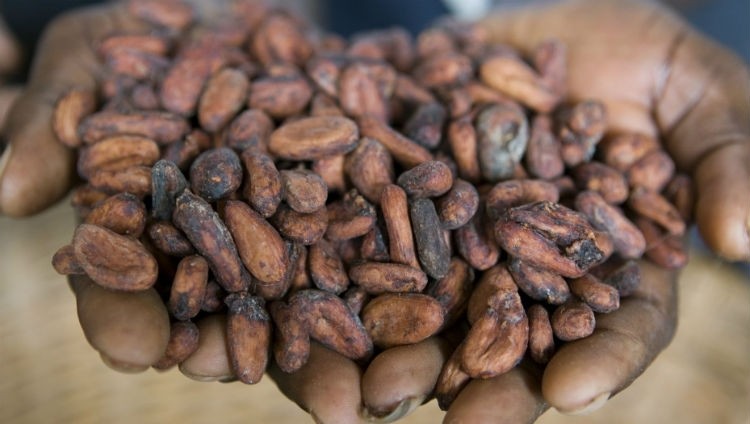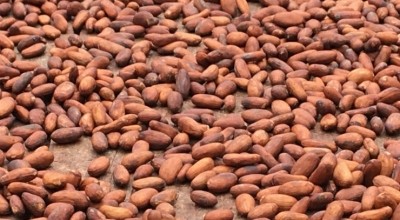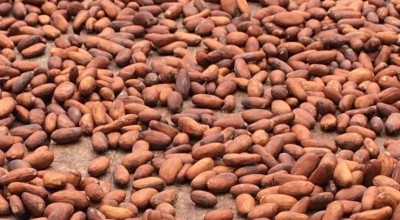Sustainability
Ghana and Cote d’Ivoire cancel Hershey’s sustainability programmes as row over 'cheap cocoa beans' intensifies

- Article updated 2 December 2020 to include Mars Wrigley response.
In a letter addressed to Hershey and leaked to the media, the Ivorian and Ghanaian cocoa regulators have accused Hershey of sourcing 30,000 tonnes of cocoa on the ICE futures exchange in order to avoid paying the premium.
The letter, sent to Hershey on Monday, accused the company of “conspiracy and machinations,” saying the use of the exchange was a clear indication of Hershey’s intention to avoid paying the LID.
Failure to comply with the orders would mean companies could lose their licenses to operate in the countries, they added.
The letter, which also accuses Fuji Oil Holdings' Blommer subsidiary of aiding Hershey, was verified as authentic by spokespeople for the regulators.
Companies including Mars Wrigley, Mondelez International, Barry Callebaut, Hershey’s and Nestlé have invested heavily in their own voluntary certification schemes in West Africa as a response to pressure from consumers for ethically sourced chocolate.
Name and shame
Cote d’Ivoire and Ghana, which account for approximately 70% of the world’s supply, threatened to name and shame chocolate companies caught trying to buy ‘cheaper beans’ on the futures market to avoid paying a premium aimed at boosting farmers’ incomes.
The countries also said Mars had allegedly changed its buying patterns for the same reason, an allegation denied by the company.
A spokesperson told ConfectioneryNews: “Mars Wrigley has not changed its cocoa buying practices to avoid payment of Living Income Differential (LID). We categorically reject any allegation implying that we have. The recent cocoa butter we purchased is a regular, repeat purchase consistent with Mars suppliers and origins used for the past three years.
"We were the first chocolate company to publicly support the LID, and are disappointed that others in the industry have recently chosen different purchasing routes. For cocoa farmers to thrive, all chocolate manufacturers and suppliers should be following our lead by supporting the LID, investing in sustainability programs to protect children and forests and purchasing responsible and sustainable cocoa.”
Chocolate makers and cocoa processors had agreed to pay the West African nations a ‘living income differential’ of $400 a tonne on top of the market price. The new price came into effect for the main 2020/2021 season crop this October.
Coronavirus pandemic
The coronavirus pandemic has slashed demand, with cocoa grinding figures down, forcing chocolate companies to cut costs.
A Hershey spokesperson told ConfectioneryNews that all its 2020/2021 cocoa purchased within its supply chain since the implementation of the LID in West African countries includes the LID price premium. “Beans sold prior to the implementation of the LID would not include the premium."
Hershey also said it remains "deeply committed to our substantial cocoa sustainability work with producer governments on our mutual goals to tackle the root causes of poverty that put youth at risk as well as ending deforestation. In addition to paying the Ivorian and Ghanaian Living Income Differential to help increase farmers’ income from cocoa, Hershey is investing in farmer training to enable growing more cocoa on less land and improving productivity, which helps address poverty, the main driver of labour issues in cocoa. Hershey is also helping farmers diversify their incomes with alternative crops and other income-generating activities as well as paying farmers a premium for their cocoa."
Mars and Blommer were not available for comment.
The two countries have also reportedly withdrawn their membership of the Cocoa Merchants’ Association of America.
Ghanaian and Ivorian cocoa regulators also said they were reviewing their membership of the Federation of Cocoa Commerce in London and that they are “reconsidering the incentives and the licenses granted to members of the FCC which are directly or subtly rejecting” the living income differential.






